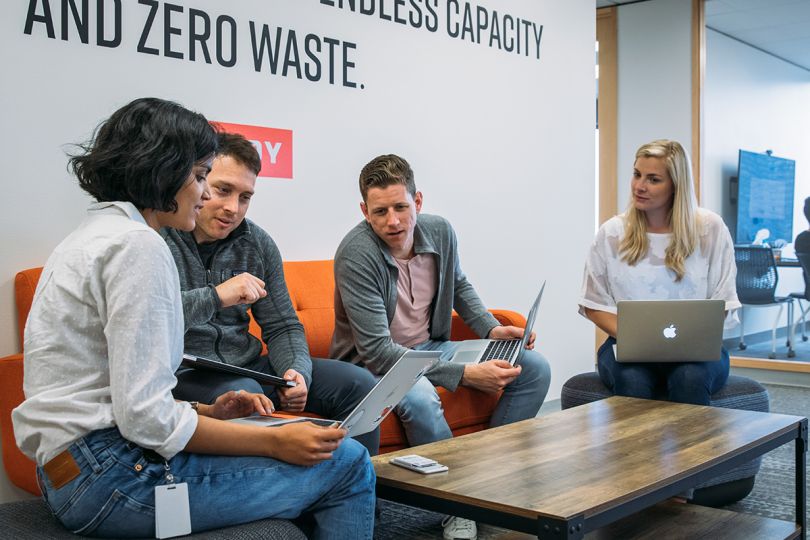
Convoy's Green Revolution: Transforming Freight Transportation for a Sustainable Future

Woman working on laptop, orange couch
The freight industry faces a significant challenge: 35% of heavy-duty trucks drive empty after deliveries, resulting in "deadhead miles." These empty trips generate 87 million metric tons of CO2 emissions annually, with 61 billion out of 175 billion trucking miles driven without cargo in the U.S.
The $800-billion freight industry remains highly fragmented, with 90% of trucks belonging to small companies. This fragmentation has historically hindered efficiency improvements and sustainability efforts.

Man working on laptop at home
Modern technology solutions are transforming the industry through:
- Digital freight networks
- Machine learning algorithms
- Automated load matching
- Real-time supply chain visibility
- Drop-and-hook freight accessibility
Key improvements achieved through technology:
- Reduction of empty miles from 35% to 19%
- Potential 40 million metric ton decrease in CO2 emissions
- Enhanced earnings for carriers
- Improved efficiency for shippers
- Better planning capabilities for small trucking companies
The industry faces an estimated shortage of 80,000 drivers. However, technological solutions are helping address this gap. Every 1% shift to drop-and-hook operations effectively adds 10,000 drivers to the workforce by improving efficiency.

Coworkers meeting at coffee table
Future improvements focus on:
- Increasing carrier productivity
- Reducing industry waste
- Enhancing supply chain resilience
- Implementing sustainable practices
- Democratizing access to freight opportunities
These technological advances are creating a more sustainable and efficient freight industry while addressing both environmental concerns and operational challenges. The transformation demonstrates that improving efficiency and sustainability can go hand in hand with business success.
Related Articles

Top 18 Leading Logistics Companies Operating in Singapore
